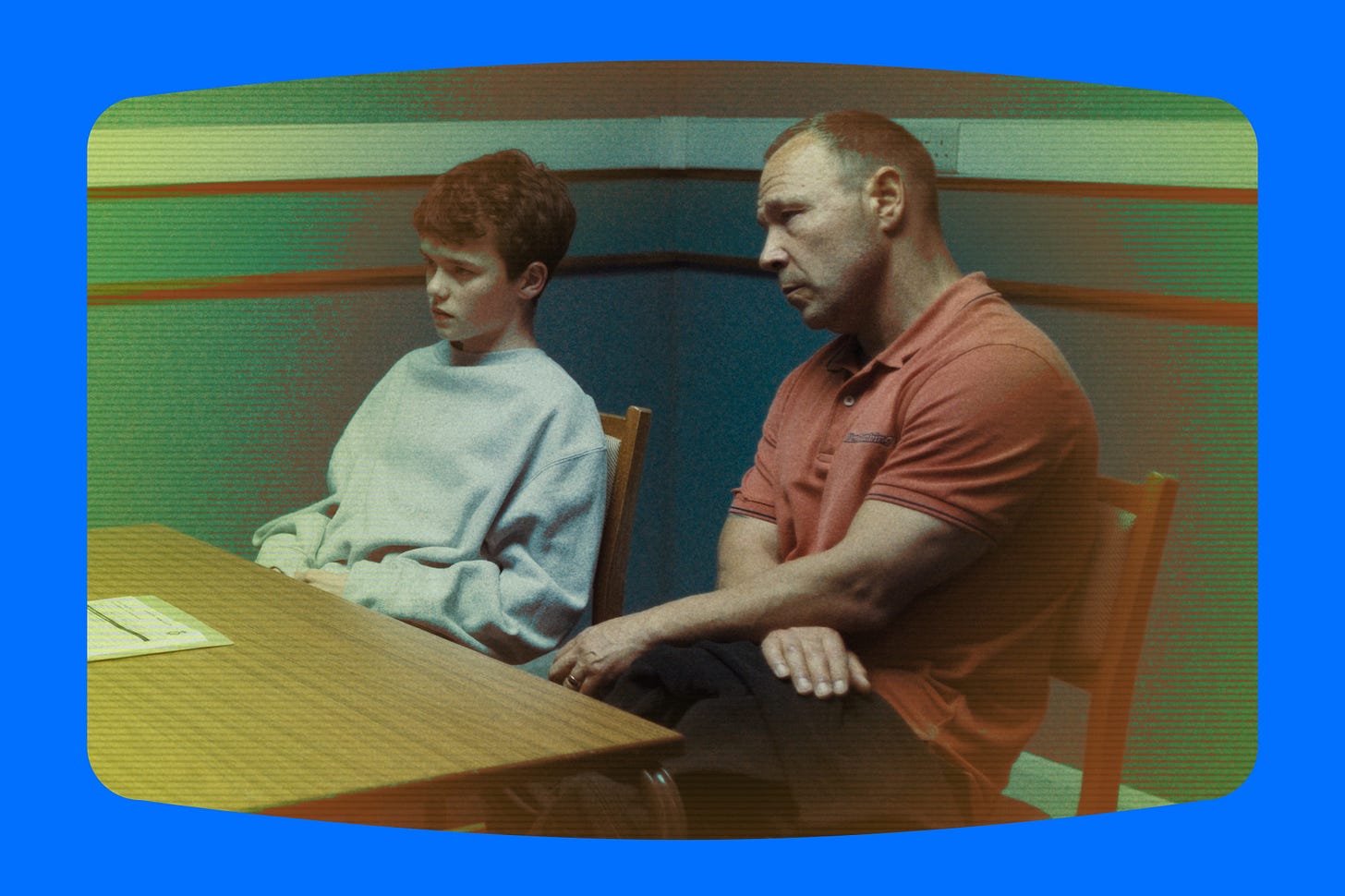'Adolescence' Producers Were Struggling. Then Netflix Said Yes
Mark Herbert and Emily Feller tell me how they went from nearly closing to global sensation, how the series might continue & their coming nuclear war project
Manori Ravindran writes about int’l TV from London. She recently covered European production alliances and Ireland’s “conveyer belt” of production for U.S. reality shows.
Netflix this week revealed that Adolescence, which tackles toxic masculinity and the manosphere’s impact on young boys, has surpassed the Shondaland period drama Bridgerton. That’s right: A British limited drama (or so we thought — I’ve got some exclusive details on that later) that swapped wisteria-strewn stately homes for a gloomy youth detention center is the fourth most-watched TV show of all time on Netflix, amassing 114 million views in less than a month. It’s also being screened for free in U.K. secondary schools after winning the support of British Prime Minister Keir Starmer.
It’s astonishing when you consider that, just two years ago, the show’s 25-year-old Sheffield-based co-producer Warp Films — one of the country’s most respected film and TV outfits, behind indie darlings such as Four Lions, Submarine and This Is England — was in a precarious position amid the industry downturn and on the cusp of making a big decision about its future.
“We literally had a couple of things that just got pushed back a little bit — things slip, things move, things don't get greenlit,” Warp Films CEO Mark Herbert tells me. “We were so close to it being really tight and kind of a scary moment for Warp. And then, suddenly, we have two shows literally shoot at the same time.”
Last summer, alongside Adolescence, Warp also filmed its new BBC series Reunion, a pseudo-Western revenge thriller with a predominantly deaf cast and crew that debuted on Monday to stellar reviews.

This one-two Netflix-BBC punch has put Warp at the center of a raging media debate about the British public broadcasters’ ability to compete with the streamers. Since my interview with Herbert and Warp chief creative officer Emily Feller early this week, Members of Parliament have called on the government to introduce a levy on the streamers, which would see players such as Netflix, Prime Video, Disney+ and Apple TV+ contribute 5 percent of their U.K. subscriber revenue into a dedicated fund that would be used to fund British drama. The timing isn’t great, what with the specter of a global trade war hanging overhead, but the concept of a streaming levy preceded Trump’s on-again, off-again tariffs and has been floated for years as a way of easing the pressures facing U.K. scripted TV. (Netflix has already pushed back, noting in a statement that “levies diminish competitiveness” and ultimately penalize audiences who then face price hikes.) Perhaps more realistic is the other recommendation by MPs, for a new tax credit for mid-budget productions.
However, at the heart of this call for broadcaster-streamer equity are pretty legitimate concerns that broadcasters are falling behind. Indeed, as Herbert and Feller tell me, Warp and co-producers Plan B and Matriarch Productions never pitched Adolescence to a broadcaster, even though its subject matter was catnip for the likes of the BBC, which has a clear public service mandate for its programming. It boils down to budgets and money, but if I were a content boss at the BBC, that would keep me awake at night.
What has actually kept me awake at night is Warp’s just-announced new project: a TV adaptation of the 1984 BBC film Threads, a fictional depiction of life in northern England after a nuclear strike that truly spares no visual details. Like the 1983 ABC movie The Day After, which also graphically chronicled the horrors of a nuclear blast in the U.S., it had a huge impact on the culture and stirred political debate about the Cold War.
Directed by Mick Jackson, a documentary maker who went on to helm Hollywood movies L.A. Story and The Bodyguard, Threads is unlike anything I’ve ever seen (it’s on iPlayer in the U.K. and available to rent on Prime Video Stateside; I couldn’t find The Day After streaming anywhere, but there are DVDs for sale on Amazon and eBay). And given the adulation for HBO and Sky’s nuclear drama Chernobyl back in 2019, Threads has all the ingredients of yet another mega-hit for Warp Films.
“With Adolescence, people identified with this very specific, authentic British story that resonated around the world, and I think that’s what Threads can do, where that fear of ‘what would happen if this terrible thing happened’ is global,” explains Herbert. “We can tap into that while being very authentic to the original.”
In my wide-ranging interview with Feller and Herbert, edited a bit for length and clarity, we cover:
How Warp Films clawed back from “a scary moment” to global success
Which Netflix U.K. exec put Adolescence on the fast track — and why speedy buys and development could save British broadcasters
Which streamer said no
What the company is looking for in an investor now
Why a “maybe” is worse than a no from a buyer
The single element of production that made Adolescence expensive — but not “expensive-expensive,” says Herbert.
What’s next for Adolescence, and the options for continuing it
Why they’re dubious about the impact of the MPs’ proposed levy
Their advice for building a production company with a distinct and powerful brand
This column is for paid subscribers only. Interested in a group sub for your team or company? Click here.
For full access and to continue reading all Ankler content, paid subscribers can click here.



